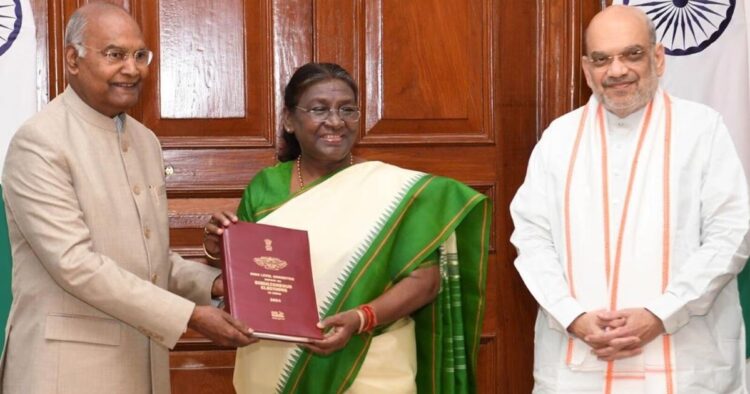In a significant move towards enhancing governance efficiency, President Droupadi Murmu has underscored the importance of implementing the “One Nation, One Election” initiative in Bharat. This initiative, also known as simultaneous elections, aims to hold elections for the House of the People, State Legislative Assemblies, and local bodies like Municipalities and Panchayats simultaneously, thereby reducing administrative complexities and ensuring synchronized representation across all levels of government.
President Murmu’s advocacy for “One Nation, One Election” comes against the backdrop of historical practices and contemporary challenges in Bharat’s electoral landscape. While simultaneous elections were prevalent until the fourth general elections of 1967, disruptions in this cycle have led to the country facing multiple elections annually. Addressing this issue, the President highlights the urgent need to revive simultaneous elections to streamline governance and reduce electoral expenditure.
Conscious efforts have been made by the Central Government, State Governments, and Political Parties to advance the “One Nation, One Election” agenda. The Election Commission of India has been pivotal in persuading State Legislative Assemblies in seven states, including Bihar, Bombay, Madras, Mysore, Punjab, Uttar Pradesh, and West Bengal, to dissolve prematurely to facilitate simultaneous elections in 1957.
The recommendations put forth by a high-level committee further strengthen the case for simultaneous elections. The committee proposes amendments to the Constitution in two steps, enabling simultaneous elections for the Lok Sabha and State Legislative Assemblies, followed by synchronization with Municipalities and Panchayats within a hundred days. President Murmu emphasizes the importance of these recommendations in ensuring smooth and transparent electoral processes across all tiers of government.
Reflecting on historical precedents, the committee draws attention to the second general elections in India held in 1957. To achieve synchronicity, the Election Commission collaborated with political parties, the Central Government, and State Governments to dissolve legislative assemblies prematurely, ensuring the successful conduct of simultaneous elections.
The role of the Election Commission, under President Murmu’s guidance, is crucial in implementing simultaneous elections. The Commission has convened conferences with political parties and consulted with governments to determine optimal polling periods. Additionally, collaboration with State Election Commissions is essential in preparing a single electoral roll and facilitating logistical arrangements for local body elections.
President Murmu’s leadership underscores the commitment to democratic principles and efficient governance. By advocating for “One Nation, One Election,” she aims to streamline electoral processes, reduce administrative burdens, and ensure synchronized representation across the nation. As discussions progress, the nation stands poised to embrace a unified and efficient electoral system, reflecting the collective aspirations of its citizens.

















Comments